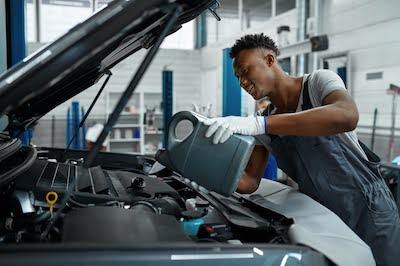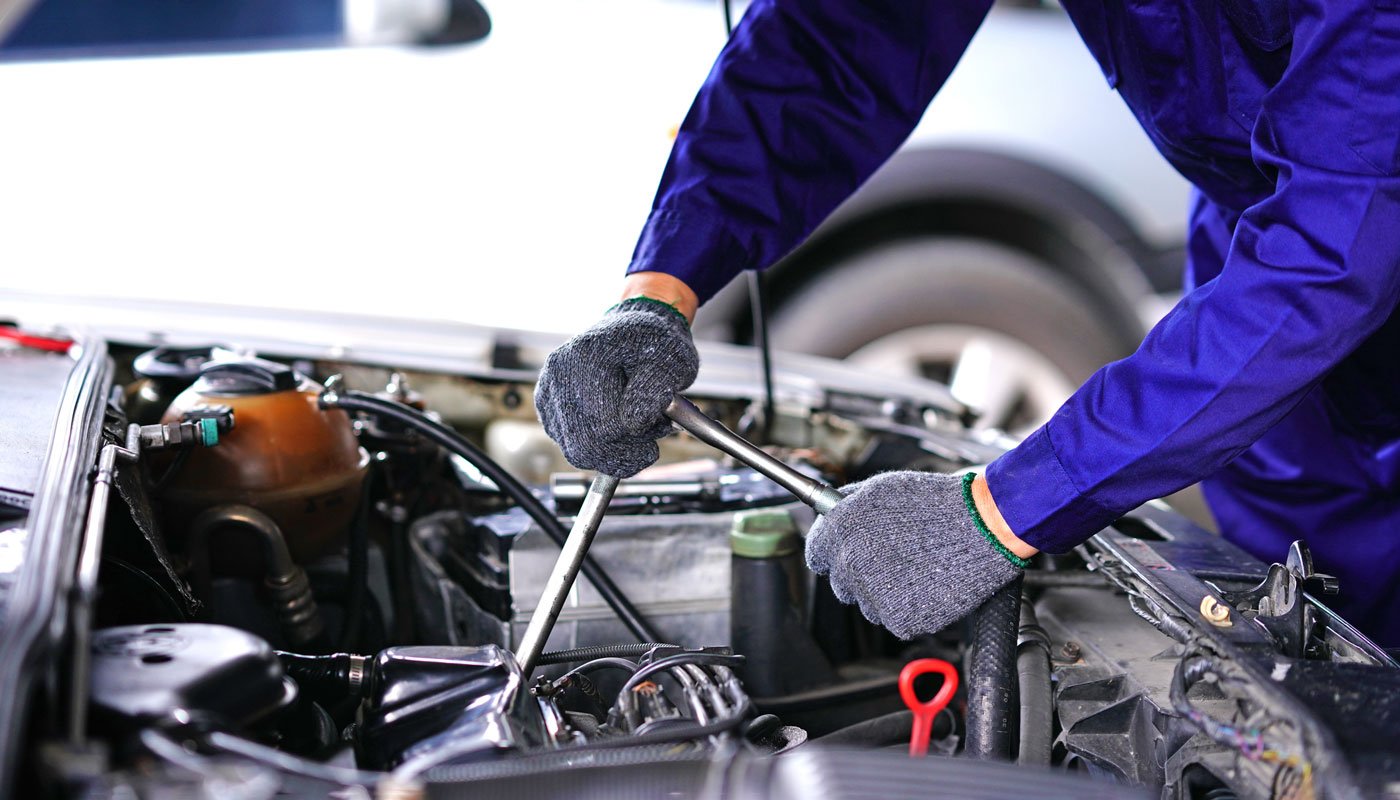When the air conditioning (A/C) system in your vehicle begins to malfunction, it can be discouraging, especially on warm summer days. Understanding the most usual causes of A/C problems can aid you attend to the concern promptly and stay clear of expensive repairs. Right here are a number of reasons why your auto's air conditioning may not be functioning as it should.
![]()
If your A/C blows warm or insufficiently great air, maybe an indication that the cooling agent needs to be reenergized. A mechanic will have the ability to inspect the refrigerant degree and leading it off or fix any leaks triggering the loss of refrigerant.
![]()
Indications of a malfunctioning compressor consist of uncommon sounds like squealing or grinding, or the cooling blowing warm air rather than awesome air. A defective compressor can usually be fixed or changed, but neglecting it might result in a pricey repair or substitute of the entire A/C system.
When the air flow is limited, the A/C system has to function tougher to cool the cabin, which can cause inefficient performance. Changing the air filter regularly-- normally every 12,000 to 15,000 miles-- can stop air movement concerns and maintain your A/C running smoothly.
If your A/C system stops working instantly, maybe as a result of an electric issue. A qualified auto mechanic will be able to check the electric parts and replace any faulty parts.
Usual signs of an air conditioning follower issue consist of the A/C blowing cozy air or a rise in engine temperature. If you suspect a problem with the air conditioning followers, it is necessary to have them checked and fixed immediately to protect against additional damages to the A/C system.
If you notice that your A/C strikes warm air, or if the air gets cold just intermittently, the development shutoff might be the offender. An auto mechanic will have the ability to change the valve and inspect if necessary.
![]()
An expert mechanic can use unique devices to identify leaks in the system and fix them. Without fixing leaks, your A/C will certainly continue to lose refrigerant, and your vehicle will likely experience repeating problems.
Just How to avoid A/C Issues. To keep your A/C system working efficiently and extend its life expectancy, follow these preventive ideas:
Run your A/C regularly: Also in the chillier months, run the A/C for a few minutes every few weeks to maintain the system lubricated and the seals intact. Inspect refrigerant levels: Regularly check the refrigerant degrees and leading them off if required. Replace the cabin air filter: Replace your cabin air filter on a regular basis to make sure great air flow and maintain the system working effectively. Keep the condenser clean: Consistently clean the condenser to get rid of particles like leaves or dust that could block air movement. Final thought. Comprehending the typical reasons of A/C problems can assist you take the right actions to keep your automobile's air conditioning system in leading problem. If you see any kind of concerns with your A/C system, seek advice from a certified technician to fix the problem and check prior to it gets worse.
- Low Refrigerant Degrees. The cooling agent is a vital part in your vehicle's A/C system. It helps absorb warmth from the air inside the cabin and eliminates it outdoors. If the cooling agent degree is low, the system can not cool the air efficiently. Reduced refrigerant is usually triggered by tiny leaks in the system or due to the refrigerant vaporizing with time.

If your A/C blows warm or insufficiently great air, maybe an indication that the cooling agent needs to be reenergized. A mechanic will have the ability to inspect the refrigerant degree and leading it off or fix any leaks triggering the loss of refrigerant.
- A Faulty Compressor. The compressor is in charge of flowing refrigerant throughout the A/C system. It is powered by the engine and functions by pressurizing the cooling agent so that it can be cooled by the condenser. If the compressor stops working, the entire A/C system will certainly stop functioning.

Indications of a malfunctioning compressor consist of uncommon sounds like squealing or grinding, or the cooling blowing warm air rather than awesome air. A defective compressor can usually be fixed or changed, but neglecting it might result in a pricey repair or substitute of the entire A/C system.
- Clogged Air Filters. The cabin air filter plays an essential role in keeping the air inside your vehicle clean by trapping dirt, dust, and various other bits. Over time, the air filter can become clogged, restricting air flow and causing the A/C to blow irregular or weak air.
When the air flow is limited, the A/C system has to function tougher to cool the cabin, which can cause inefficient performance. Changing the air filter regularly-- normally every 12,000 to 15,000 miles-- can stop air movement concerns and maintain your A/C running smoothly.
- Electrical Issues. Modern vehicles have complex electric systems, and issues with electrical wiring or fuses can impact your A/C system. If a fuse blows or circuitry comes to be rusty, it can protect against the A/C system from operating correctly.
If your A/C system stops working instantly, maybe as a result of an electric issue. A qualified auto mechanic will be able to check the electric parts and replace any faulty parts.
- Broken Cooling Followers. Cooling down fans help manage the temperature level of the A/C system by guiding air movement across the condenser. If the cooling fans fall short or quit working, the cooling agent can not cool down appropriately, causing the air to remain warm.
Usual signs of an air conditioning follower issue consist of the A/C blowing cozy air or a rise in engine temperature. If you suspect a problem with the air conditioning followers, it is necessary to have them checked and fixed immediately to protect against additional damages to the A/C system.
- Faulty Development Shutoff. The growth shutoff controls the flow of cooling agent right into the evaporator, where the air is cooled down prior to going into the cabin. If the growth valve is damaged or stopped up, it can interfere with the circulation of refrigerant, causing the A/C to blow cozy air. This concern can additionally trigger the evaporator to freeze, causing a total A/C failing.
If you notice that your A/C strikes warm air, or if the air gets cold just intermittently, the development shutoff might be the offender. An auto mechanic will have the ability to change the valve and inspect if necessary.

- Leaks in the System. Leakages in your A/C system, whether in the refrigerant lines or parts like the evaporator or condenser, can trigger your A/C to quit working. Refrigerant leakages are one of the most usual factors for a decrease in A/C efficiency. Also a little leakage can trigger considerable problems with the cooling process, as the refrigerant level decreases and the system falls short to cool down the air properly.
An expert mechanic can use unique devices to identify leaks in the system and fix them. Without fixing leaks, your A/C will certainly continue to lose refrigerant, and your vehicle will likely experience repeating problems.
Just How to avoid A/C Issues. To keep your A/C system working efficiently and extend its life expectancy, follow these preventive ideas:
Run your A/C regularly: Also in the chillier months, run the A/C for a few minutes every few weeks to maintain the system lubricated and the seals intact. Inspect refrigerant levels: Regularly check the refrigerant degrees and leading them off if required. Replace the cabin air filter: Replace your cabin air filter on a regular basis to make sure great air flow and maintain the system working effectively. Keep the condenser clean: Consistently clean the condenser to get rid of particles like leaves or dust that could block air movement. Final thought. Comprehending the typical reasons of A/C problems can assist you take the right actions to keep your automobile's air conditioning system in leading problem. If you see any kind of concerns with your A/C system, seek advice from a certified technician to fix the problem and check prior to it gets worse.
Navigation
Home
Latest Posts
Experience Deluxe Redefined: The All-New Mazda CX-90
Published May 25, 25
2 min read
Emphasizing Innovation and Driving Experience
Published May 24, 25
2 min read
Experience Deluxe Redefined: The All-New Mazda CX-90
Published May 21, 25
1 min read